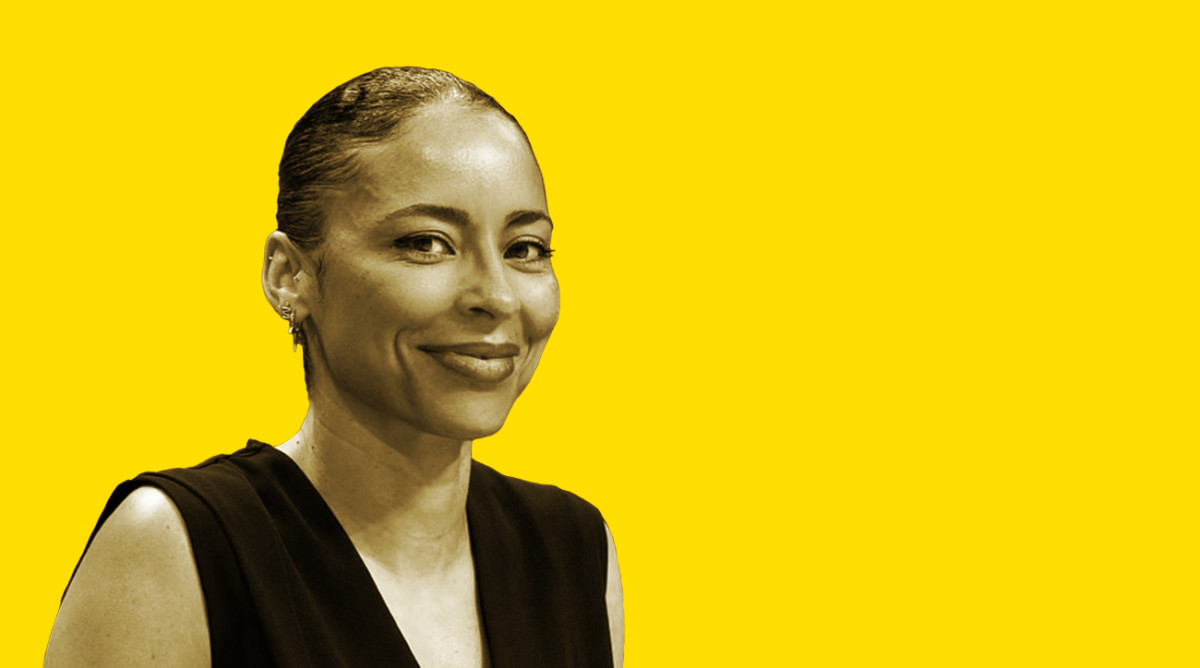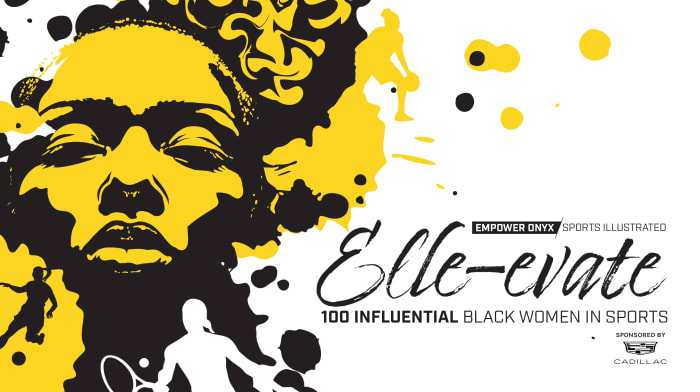
Allison Feaster Brought Her Own Seat to the Boston Celtics Table
Sports Illustrated and Empower Onyx are putting the spotlight on the diverse journeys of Black women across sports—from the veteran athletes, to up-and-coming stars, coaches, executives and more—in the series, Elle-evate: 100 Influential Black Women in Sports.
Allison Feaster is entering her fourth season as the vice president of player development and organizational growth at the Boston Celtics. She is one of the handful of women of color in high-ranking roles for an individual sports organization, but she never envisioned herself working in such a critical back-office position for a professional sports team.
“I had no clue,” she says. “I thought that I would graduate from Harvard. I thought I would go to business school and get a ‘regular job.’ … This is just unreal. It's a dream come true for me.”
The Harvard alumna graduated as not only one of the best basketball players that ever graced Harvard’s campus, but also one of the greatest players to ever graduate from an Ivy League institution. After an incredible senior season, Feaster turned down a job on Wall Street and decided to extend her playing career. She was selected fifth to the Los Angeles Sparks in the 1998 WNBA draft; the highest basketball draft pick of any Ivy League student athlete since the 1976 ABA-NBA merger and the inception of the Women’s National Basketball Association.
Feaster played for the Sparks, Charlotte Sting and Indiana Fever before transitioning to play overseas in the EuroLeague for a decade. Feaster treasures the lessons derived from her experiences as a woman of color in different basketball teams and social experiences more than those learned in the classroom.
As a result of Feaster’s basketball prowess, she landed in many places as the minority. A southerner from the small town of Chester, South Carolina, Feaster has since resided in distinguished and distant locales like: Cambridge, Massachusetts; Valenciennes, France; and Girona, Spain. A lot of times, she was the only person of color and the only English speaker in sight.
“I use what I’ve learned from being on basketball teams, more so than I probably use anything I learned in school … no disrespect to the wonderful, elite education I have,” she says. “I learned how to survive in different environments … but it's also made me appreciate the unique platform we have as athletes and now as an executive and as a woman of color.”
Those circumstances prepared her for her positions at the G League, where she served as a lead of culture relations, as well as at the NBA in the player personnel department. Those roles were stepping stones to her current position with the Celtics.
When Feaster joined the Celtics, her responsibilities were centered on two things: player development and bettering the organization overall by identifying areas of growth and opportunity. She focuses on these duties by helping players maximize their opportunities on and off court by featuring different resources available for them to do so within the Celtics organization and acting as a liaison between the Celtics and the league office. Now, three years later, Feaster’s commitments have grown to, what she calls, “basically do[ing] whatever needs to be done, especially from the directive of our president… I’m the cultural ambassador for the organization.” She works closely with Celtics president Brad Stevens, head coach Ime Udoka, the business operations office and other divisions to propel the organization to be the best they can be. The ultimate goal: seeing banner 18 hang over the rafters in TD Garden.
Feaster is not only a vice president for the Celtics, she is also the co-lead for their social justice initiative, Boston Celtics United. Started in 2020, the program is geared toward combating issues that have affected Black and brown communities in the Boston area. The multi-pillared initiative focuses on racial injustices and social inequities that have stemmed from systematic racism in the nation. Feaster is a co-lead for the criminal justice and law enforcement pillar policing.
“We came together as an organization, hearing from our players, our ownership group, senior leaders in the organization formulate a response,” she explains, “it's really a challenge because there's so much work to do, but at the same time, we're just trying to chip away and in small areas.”
The organization has raised over $20 million dollars for the initiative to fuel their efforts in creating change throughout the community.
One saying that Feaster holds on to is “No one gets where he or she is alone.” Along with her thankfulness for her job, she is even more thankful for her support system over the years. When asked about the pivotal people in her life, she quickly named her mother Sandra Booker, her Harvard coach Kathy Delaney-Smith and Danny Strong (the father of her daughter, Sarah Strong).
“I leaned a lot on my mother,” Feaster says. “She raised the four of us, my siblings, she raised us by herself. My college coach, who was like a second mom to me … she was always someone who I turn to for guidance. My daughter's father, who was also my high school sweetheart, he's always been there … [they’ve been] crucial to my growth as a new professional and have helped me all in their own special way.”
Feaster also relishes the small community of women who work in the NBA front office and other basketball operation capacities that reached out to her when she took her place in Boston. Being the only woman in the room is not easy, but Feaster finds comfort and support with these women when juggling womanhood, motherhood and other everyday challenges all while balancing a demanding professional schedule. “We rely heavily upon each other and are helping each other navigate the space,” she says. “It makes the journey so much more special when you can tap into women who are experiencing similar journeys as moms, as very driven career-oriented women, trying to impact the game.”
Feaster wishes to impact anyone whose desire is to follow in her footsteps to work in the sports industry. She notes that the industry is becoming more inclusive and seeking out more diverse voices, but she implores women to not be afraid of having the tough conversation. “I would say [to women] knock down doors and do research,” Feaster says. “Be brave. Be bold. Don’t be afraid to ask questions or introduce yourself. I remember a quote by Shirley Chisholm… the crux of it is pulling up your own seat when one is not created for you. I try to do that in the most respectful and humble way that I know how.”
Nyala Pendergrass is a contributor for Empower Onyx, a diverse multi-channel platform celebrating the stories and transformative power of sports for Black women and girls.
































